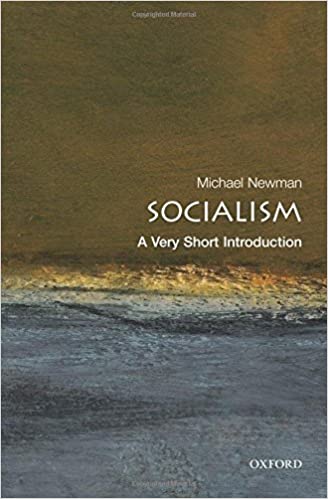Michael Newman – Socialism Audiobook
Michael Newman – Socialism Audiobook Free Online (A Very Short Introduction)

This book satisfied my destinations to say the very least. Newman isolated his review into four sections, the first ‘Communist Traditions’ tended to the greater part of my inquiries with regards to the introduction of communist hypothesis and its direction all through the nineteenth century until the Russian upset when it started inseparably interweaved with the Soviet elucidation. Michael Newman – Socialism Audiobook Free Online. In this forty-page section, he tended to idealistic communists like Robert Owen and Charles Fourier, the present day communists Marx and Engels and after that the swing to conventional communism in the late nineteenth century as it wound up plainly useful legislative hypothesis in nations like Britain and Germany under the support of the Labor and SPD parties. There was a lot more in this part was exceptionally helpful to me and I felt like he had addressed the greater part of my inquiries and given me more ranges to seek after, the goal of any elegantly composed presentation.
The following two parts comprised of cases representing communism in the twentieth century. In Chapter 2, he investigated two diverse communist governments – the communist vote based system of Sweden and the comrade administration of Cuba. Socialism Audiobook Download.
How they had landed at their type of government, their legislative projects since receiving communism and how their administration fit into the general standards of communism. He utilized these cases to thoroughly analyze Sweden as a nation where the grasping of private enterprise inside communist hypothesis had demonstrated effective with Cuba as a nation that had rejected free enterprise and had fizzled. In any case, Newman likewise reminded the peruser that every nation had brought its own interesting history and conditions to communism and it had its own impact. In Chapter 3, he broke down the discontinuity of communism in the late twentieth and mid 21st centuries, showing two particular orders – women’s activists and the Green party, both discovering their underlying foundations in the tumultuous 1960s, thriving in the late 1970s and mid 1980s, and after that each finding distinctive destinations at last. Each had associations with communism, however had additionally strayed from the center of intuition in some ways and wound up on the periphery.